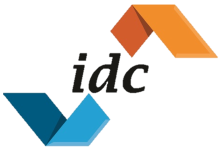How to Overcome the Challenges of DEI
Diversity, Equity & Inclusion (DEI) are essential for any organization that wants to be
successful in today's global economy. A diverse workforce brings a variety of perspectives and experiences to the table, which can lead to better decision-making, innovation, and productivity. However, creating a truly inclusive workplace is
not quick or easy; it takes
ongoing efforts and resources.
9 DEI Challenges Organizations Face
- Lack of Awareness: Many people aren’t aware of DEI’s importance or the challenges marginalized groups face.
- Lack of Understanding: Even people who are aware of the importance of DEI may not understand the ways that bias and prejudice can manifest in the workplace.
- Lack of Resources: Some organizations may not have financial or staff resources to invest in DEI initiatives, making it difficult to create an inclusive workplace.
- Lack of Leadership Support: Without support, progress is difficult. Leaders need to commit to and provide resources and support for Diversity and Inclusion initiatives.
- Bias: A natural human tendency that can be difficult to overcome. All people have biases that affect their behavior.
- Prejudice: A more conscious form of bias that can be more difficult to overcome. People holding prejudices may be resistant to change and closed to learning about the experiences of others.
- Unconscious Bias: A type of bias occurring when people make decisions or judgments without being aware of their own biases. It can lead to discrimination, even unintentionally.
- Microaggressions: Subtle, everyday forms of discrimination. Microaggressions can be verbal, nonverbal, or environmental and can have significant impacts on one's mental and emotional well-being.
- Tokenism: Hiring or promoting a person from a marginalized group to appear diverse. Tokenism is not inclusion, and can be harmful to those who are tokenized.

Overcoming DEI Challenges
Despite these challenges, there are several things organizations can do to overcome them and create a more diverse, equitable, inclusive, and accessible workplace.
Create Awareness, Understanding, and Support
One of the most important things that organizations can do is to create awareness, understanding, and support for DEI. This can be done through training, education, and open dialogue. Organizations should also create a culture of Inclusion where everyone feels safe and respected, regardless of their background.
Address Unconscious Bias in the Workplace
Unconscious bias is a major challenge to DEI. Organizations can address unconscious bias by providing training on unconscious bias and by creating a culture where people feel comfortable talking about their biases.
Deal with Microaggressions
Microaggressions are another major challenge. Organizations can deal with microaggressions by providing training on microaggressions and by creating a culture where people feel comfortable reporting microaggressions.
Avoid Tokenism
Organizations can avoid tokenism by hiring and promoting people from marginalized groups based on their qualifications, not on their race, ethnicity, gender, sexual orientation, or other personal characteristics.
Creating a diverse, equitable, and inclusive workplace is not easy. However, it is essential for any organization that wants to be successful in today's global economy. By addressing the challenges of DEI and taking steps to create a more inclusive workplace, organizations can create a more productive, innovative, and successful workforce.
Ready to Reshape Your Organization?
We’re Here to Help!
Not sure where to start?
Need solutions customized to your unique needs?
Have other questions?


Share On: